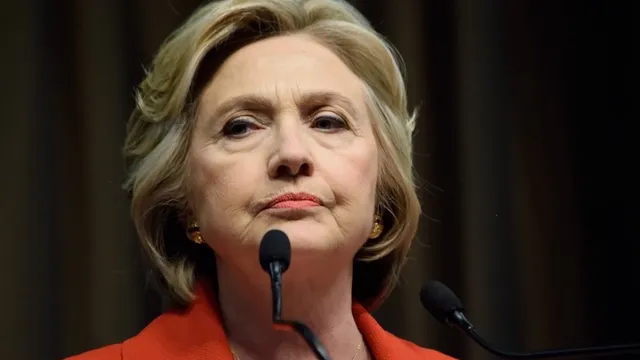
Hillary Clinton faces backlash for mocking Trump's military parade
2025-06-18 04:21- Hillary Clinton faced backlash for her comments on a military parade celebrating the U.S. Army's anniversary.
- Senator John Fetterman defended the military parade against criticism from progressive Democrats.
- The response reflects broader tensions regarding military respect and political polarization in the U.S.
Express your sentiment!
Insights
In the United States, former Secretary of State Hillary Clinton received significant criticism for her comments regarding a military parade organized to celebrate the 250th anniversary of the U.S. Army. This event took place in Washington, D.C., where a parade was held on Constitution Avenue. Clinton’s attempt to ridicule the parade on social media prompted a strong conservative backlash, with many accusing her of showing contempt for the military. Critics pointed out her decision to attend a wedding in the Hamptons during the weekend of the parade, suggesting it demonstrated a lack of respect for the military's significance. The reaction indicates a deeper tension among political figures, heightened by the ongoing discussions surrounding military honor and respect in the U.S. During the event, there were also protests against President Trump's administration, with demonstrators holding rallies to express their discontent with various policies, including immigration actions. Senator John Fetterman expressed his disagreement with some progressive Democrats by defending the military parade and advocating for national pride in the army's achievements. He emphasized the importance of celebrating the Army's longstanding history while opposing comparisons of such events to totalitarian regimes, highlighting the distinctions that should be made regarding military honor and celebration in democratic societies. The event was one that drew diverse reactions, reflecting the polarized nature of American politics, particularly around military discussions and patriotism. Fetterman voiced his support for both the parade and Israel amidst ongoing international tensions, further illustrating the complex interplay between domestic sentiments and foreign policy debates.
Contexts
The military parade proposed by Donald Trump was envisioned as a grand display of American military strength, celebrating the nation's armed forces and patriotic spirit. The concept gained traction following Trump's inauguration in January 2017, where the President expressed a desire to emulate the elaborate military parades often seen in other countries. Originally, the event was set to take place in November 2017, coinciding with Veterans Day, but the plan faced numerous logistical challenges and public scrutiny, resulting in a postponement. Key components of the proposed parade included a showcase of active-duty servicemen and women, military vehicles, and aerial displays. Trump's vision called for tanks and heavy military equipment to be prominently displayed, with an emphasis on the country's technological advancements in defense. The preferred location for the parade was along Pennsylvania Avenue in Washington, D.C., which would provide a dramatic backdrop against the Capitol and the White House. However, concerns over the potential impact on city infrastructure, as well as the costs associated with hosting such an event, raised questions among city officials and the public. In July 2018, the first iteration of the parade was ultimately canceled, with officials citing high costs and logistical issues as key reasons for the decision. The estimated price tag for the event had ballooned to millions of dollars, drawing criticism from various sectors of society who felt that the funds could be better utilized for pressing national needs. Nevertheless, the idea of holding a military parade persisted, leading to a scaled-down event in 2019, which was held on Independence Day instead. While this event was met with some enthusiasm, it lacked the grandeur that initially characterized Trump's vision for a standalone military parade. The discussion surrounding the military parade highlighted broader themes of nationalism and the role of the military in American society. Supporters argued that such parades instill pride and honor the sacrifices made by servicemen and women. In contrast, critics expressed concerns about the militarization of American culture and questioned the necessity of showcasing military might in a civilian context. Ultimately, the military parade became emblematic of the political divide in the U.S., serving as a point of contention in broader debates over national identity, military spending, and the relationship between the government and its citizens.